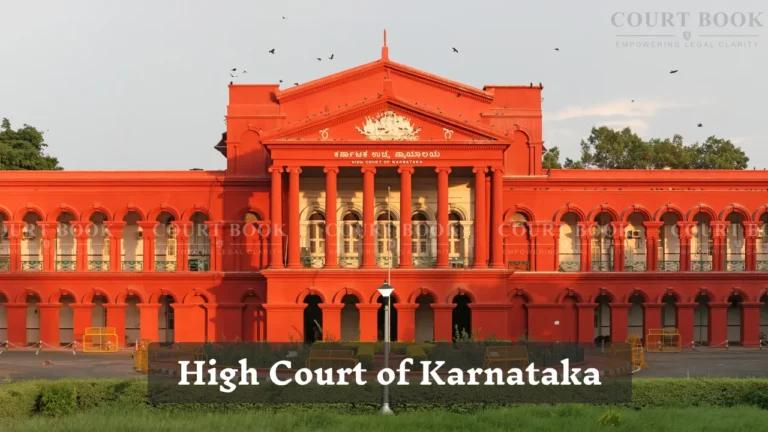In a significant judgment, the Karnataka High Court has struck down an ex parte interim order passed by a Bengaluru civil court that restrained digital journalist Ajay, Editor-in-Chief of Kudla Rampage, from reporting on serious allegations linked to the Dharmasthala Temple administration. The High Court termed the order an unconstitutional gag on media freedom.
The controversy began with a complaint by a former sanitation worker, who claimed that over a span of nearly two decades—from 1995 to 2014—he was forced to bury numerous human remains within the Dharmasthala Temple premises. The complaint also hinted at more sinister crimes, including sexual assault and murder allegedly involving individuals associated with the temple administration.
Read Also:-Karnataka HC Hears Plea Against COFEPOSA Detention of Ranya Rao; Board Confirms Order
Subsequently, another complaint surfaced from a former CBI stenographer, Sujatha Bhat, whose daughter reportedly went missing from the temple area in 2003.
Journalist Ajay had reported on these developments through his media platform. In response, Sri Harshendra Kumar D., a trustee of the temple and a prominent member of the family managing it, filed a civil suit (O.S. No. 5185/2025) before the X Additional City Civil and Sessions Court, Bengaluru. The suit named 338 defendants, including media platforms and social media companies, alleging defamation and seeking to suppress all reporting on the matter.
On the same day, the trial court passed an ex parte injunction order restraining the defendants from publishing or disseminating any “defamatory” content and ordered removal and de-indexing of 8,842 URLs, including videos and articles. A John Doe injunction was also issued to bind unknown future publishers. Ajay, who was listed as Defendant No. 66 in the civil suit, approached the High Court challenging the ex parte order. He contended that:
Read Also:-Karnataka High Court Quashes Case Against Man for Sharing WhatsApp Video of Cow Shooting Incident
The order is procedurally flawed, lacks judicial reasoning, and imposes a disproportionate restriction on free speech even before hearing the parties.
He further argued that the media was only reporting facts from an FIR (Crime No. 39/2025) and public records, which are matters of public interest. Senior Advocate Udaya Holla, representing the temple trustee, opposed the maintainability of the writ petition, suggesting that Ajay should have filed an appeal under Order XLIII Rule 1 of CPC or sought vacation under Order XXXIX Rule 4. He defended the trial court’s order, stating:
"The defamatory content published by the petitioner is ongoing and baseless. The court was justified in granting urgent relief to protect the plaintiff’s reputation and the temple’s integrity.”
High Court’s Observations and Decision:
Justice M. Nagaprasanna, delivering the verdict, noted that the trial court had granted a mandatory injunction—normally granted only after a full hearing—without following due process under Order XXXIX Rule 3 of the CPC.
The trial court failed to record the specific reasons why notice was not issued to the defendants before granting such a drastic gag order.
The High Court emphasized that ex parte mandatory injunctions should be granted only in the rarest of rare cases, where delay would cause irreparable harm, and only when such urgency is clearly demonstrated on record. The order in question did not meet those standards.
Read Also:-Karnataka High Court: Conviction in Petty Offence Not Enough to Deny Appointment for Peon Post
Even interim relief of this nature must rest on compelling justification, strong prima facie case, and a clear balance of convenience. The trial court has bypassed all these principles.
The Court observed that reporting based on public documents such as FIRs or government investigations cannot be treated as defamation without due trial and evidence.
Case Title: Kudla Rampage AND Harshendra Kumar D & Others
Case No: WP 22528/2025















